- Home
- slideshows
- miscellaneous
- 11 signs you're spending too much, even if it doesn't feel like it
11 signs you're spending too much, even if it doesn't feel like it
You never check how much you're spending.

Your rent costs more than a fourth of your monthly paycheck.

Housing accounts for the bulk of Americans' budget, taking an average 37% out of their take-home pay.
Cutting down on your housing costs can lead to far more significant savings than if you were to stop buying coffee and avocados, says Business Insider writer and certified financial planner Lauren Lyons Cole. Cole suggests looking for housing that costs 25% or less after your post-tax income, and use the cash you saved toward your retirement accounts.
"The best financial move you can make is to literally move to a less expensive home," Lyons said. "Once you do, you can celebrate at your local coffee shop."
Your monthly car payment digs into your savings.
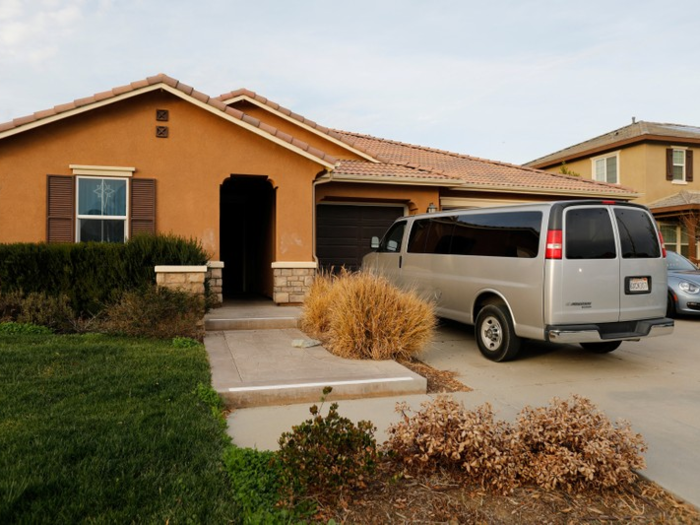
After housing, transportation is typically a household's second-largest cost, according to NerdWallet. If you can't figure out where your money is going, look in your driveway.
Americans spend an average of $725 a month (or $8,700 a year) on a typical midsize sedan, and the cost of insurance could be even higher if you have bad credit. Many people overspend on cars to the point where they can't pay down other debt or save for retirement, says certified financial coach Shirley Benning.
"My clients have incomes that range from $25,000 to $225,000, and they all have the same problem," Benning told NerdWallet. "Their eyes are always bigger than their stomach."
You're using your credit card too much (even if you have a good credit score).
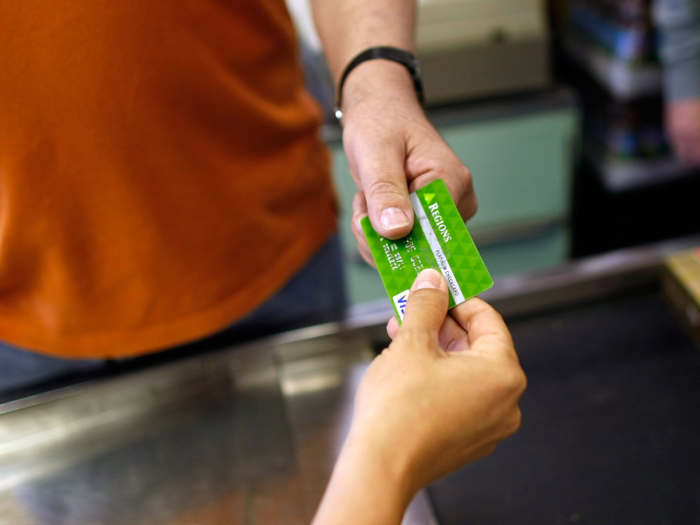
Even if you have a good credit score, you still may be overspending with a credit card, according to NerdWallet.
A big indicator that you're spending too much on your credit card is if you start online shopping or going to the mall when you're bored. Ruth Soukup, author of "Living Well Spending Less," fell into that mistake after her husband went to work and she had nothing to do as a stay-at-home mom: ""I was overspending, even though I wasn't spending more money than we had," Soukup told NerdWallet.
To help break the cycle of overspending with credit, try setting weekly spending limits or go on a temporary spending freeze, Soukup suggests.
You think clipping coupons will automatically save you at the grocery store.
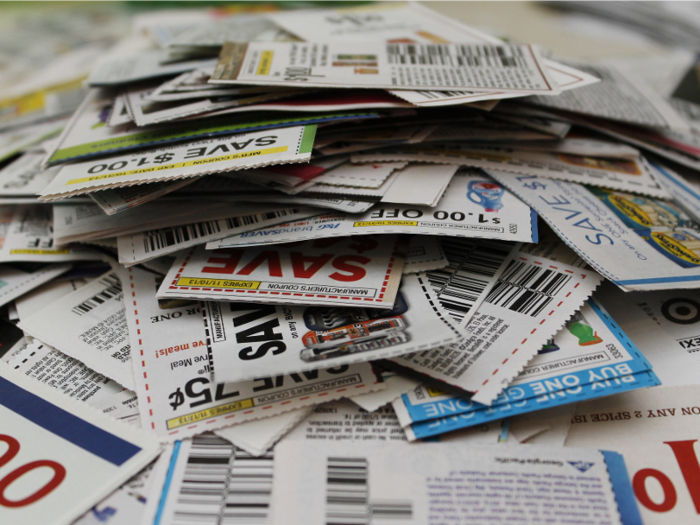
Clipping coupons sometimes gets shoppers good deals at the grocery store, but often time, the sales are for pre-packaged snacks that are a waste of money anyway, Beth Moncel, the chef behind the food blog Budget Bytes, told MONEY Magazine.
Instead, Moncel recommends purchasing nuts or snacks in bulk, and packaging them into smaller portions yourself. Finding deals on meat and produce using the Flipp app can also help you prepare in advance, she added.
"If I have the time, I'll also go to farmers' markets and international grocery stores because they have certain ingredients that are way less expensive compared to regular grocery stores," Moncel told MONEY.
You haven't checked what you're spending on subscription services in a while.
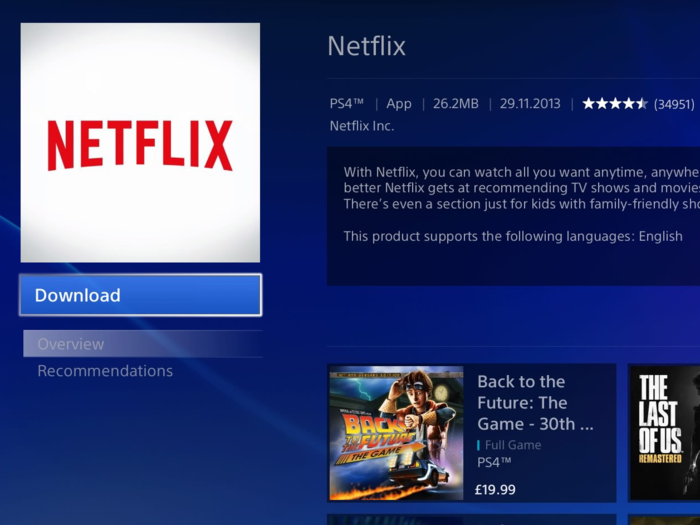
You're probably spending more on digital subscriptions thank you think.
In fact, 84% of Americans grossly underestimate how much they spend on tech subscriptions, according to consulting firm Waterstone Management Group.
If you want to cut back on your subscription services, MarketWatch suggests canceling services you haven't used within the past month or split services among your friends.
You buy your produce pre-cut.
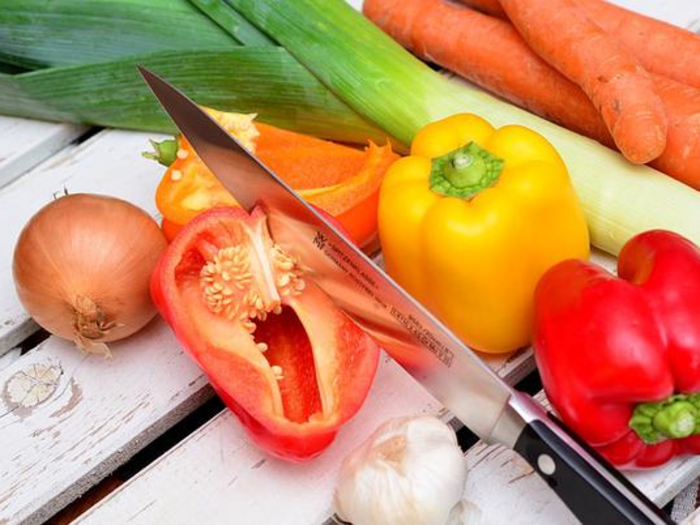
Buying pre-cut vegetables and fruits may save you time in the kitchen, but you're paying for that convenience and packaging.
Take celery: a 14-ounce box of precut celery sticks can cost $2.99 (at certain grocery stores), but a large celery stalk you cut yourself costs just $1.59, and you wind up with more produce.
"They will up that price as much as possible," Amiyrah Martin, blogger at Four Hats and Frugal, told MONEY Magazine. "People are coming in because they really need [a product] — they're trying to save time, but they're actually spending way more money."
You're buying non-food items at grocery stores.

Buying your plates and pans at Kroger could be another way you may be unknowingly spending more than you need to.
Grocery stores can be a great place to find discounts on veggies and produce, but the shops overcharge on non-food items like housewares, soap, and diapers to appeal to shoppers' impulse.
Martin suggests waiting to buy housewares on IKEA or Home Goods: "I highly suggest people just wait; get your food and go to a store that specializes in housewares and you'll save a ton of money if you do that," she told MONEY.
You're buying premium gasoline.
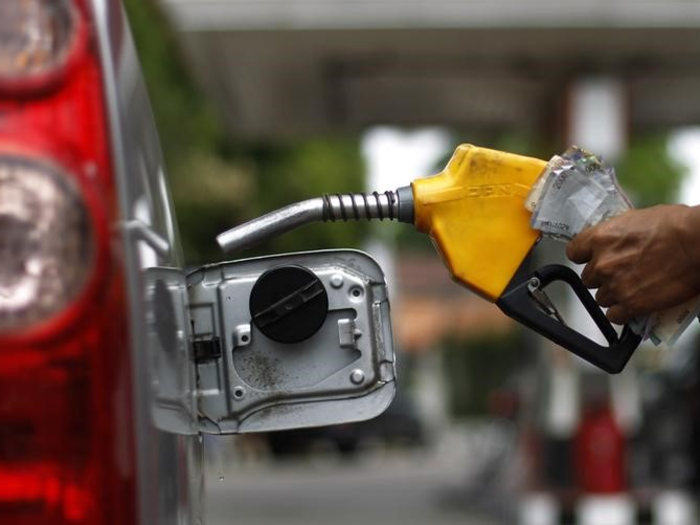
If you're constantly buying premium gas, you're wasting money without knowing it.
Americans waste over $2 billion annually on premium gas above 91 octane, according to a report by AAA. What's worse: the cost of premium fuel has risen since 2009.
"Based on AAA's testing, vehicles that only recommend premium gasoline can't take full advantage of higher octane fuel and, as a result, the benefit that comes from upgrading to premium gasoline may not offset its high cost," John Nielsen, AAA's managing director of automotive engineering and repair, said in a statement.
You're buying a bottle of water every day.

Attention water-bottle drinkers: Not only are you killing the planet, you're wasting your money. A $20 reusable bottle will save the average American $6,180 after five years of use according to Penn State University. If you insist on picking one up every time you go to the store, you're spending money unnecessarily.
"By switching to a reusable water bottle, Americans can save themselves thousands of dollars, help the environment by lowering the amount of plastic waste in the United States, and keep their families safer," Penn State University stated in a blog post.
You're taking long, hot showers.

The feel of hot water on your back in the wintertime may feel pleasant, but you'll pay for it later.
In fact, heating water accounts for 12% of a household's energy bill, according to the Department of Energy.
To save money and become more energy efficient, hop out of the shower quickly, use incandescent bulbs, and close the refrigerator when you ponder what to eat.
Popular Right Now
Popular Keywords
Advertisement